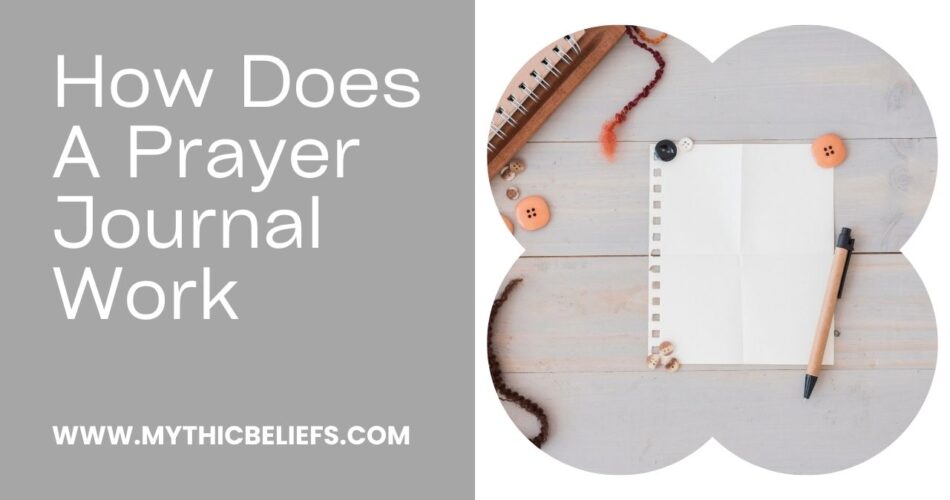There’s something undeniably powerful about writing things down. You know, like how a to-do list makes us feel ten times more productive than we actually are? Well, a prayer journal taps into that same magic — except instead of checking off chores, you’re opening up your heart to God, one page at a time.
I’ve been scribbling in notebooks since the early 2000s — back when we still used gel pens and carried chunky diaries around like trophies. Over the years, my messy handwriting has evolved into something a bit more reflective, a little more raw. And honestly? My prayer journal has become one of the most grounding parts of my day.
Let me walk you through how it all works — and maybe by the end, you’ll be tempted to start your own.
How Does a Prayer Journal Work?
At its core, a prayer journal is exactly what it sounds like — a notebook where you write out your prayers. Think of it like a spiritual diary, but instead of “Dear Diary,” you’re saying, “Hey God…” or whatever feels natural to you.
It’s a place where you can pour out your gratitude, your worries, your hopes, and even your frustrations. It’s your own private space to connect with God — and that’s the beauty of it. No filters, no pretenses.
For me, it started when I was going through a tough patch — job stress, family stuff, the usual suspects. My mind was buzzing at night, so I started jotting down my thoughts before bed, almost like a brain dump. But over time, I noticed my scribbles became more intentional — less ranty, more reflective. I’d write prayers, then later look back and see how things had shifted, how prayers were answered (sometimes in totally unexpected ways), or how my perspective had changed.
It’s not magic, but it kind of feels like it.
How Do I Start Off a Prayer Journal?
Honestly? Just start. Don’t overthink it. You don’t need a fancy notebook with gold-edged pages (though hey, if that motivates you — go for it). A dollar store spiral bound will do just fine.
Here’s a simple way to dip your toes in:
- Set the scene. Light a candle, play some calming music, grab your coffee or tea — create a little ritual that tells your brain it’s “prayer journaling time.”
- Pick a prompt. Not sure what to write? Start with one of these:
- “Today, I’m thankful for…”
- “God, I need help with…”
- “Please be with…”
- “What I learned today was…”
- Be yourself. Write like you talk. If you’re mad, say it. If you’re tired, write it. God doesn’t need fancy words — just honesty.
- Reflect. Every now and then, flip back a few pages. It’s wild to see how your thoughts, prayers, and even handwriting evolve.
Some folks like to date every entry, others doodle or decorate with washi tape and stickers (hello, 2025 journaling trends!). You do you.
Is It Okay to Have a Prayer Journal?
Yes, yes, yes. I’ve had friends ask if it’s “too formal” or “too personal” to write their prayers. The truth? There’s no such thing as too personal when it comes to talking with God.
In fact, writing can sometimes unlock things we didn’t even know we needed to say. It’s not about perfection — it’s about presence. Maintaining a prayer journal helps us show up, even when we’re distracted, doubtful, or downright moody.
And with everything going on in the world — wars, climate change, rising anxiety — having that quiet little pocket of peace is more important than ever. Prayer journaling gives us space to process, to hope, and to not feel so overwhelmed.
Plus, there’s something deeply comforting about having a record of your spiritual journey. It’s like looking back on old photos — except these snapshots are of your soul growing, healing, and slowly (but surely) trusting more.
Real Talk: Why I Keep Coming Back to It
Some days, I skip. Or I write one sentence that just says, “Tired. Amen.” That’s real life. Journaling prayer isn’t about ticking off a religious checkbox. It’s about connection.
One entry from a couple of months ago? I had just had a brutal week. I spilled coffee on my laptop, missed a deadline, and had a meltdown over the fact that we were out of oat milk. But I wrote anyway. And I ended up ending that entry with, “Thanks for listening — even when I sound ridiculous.”
That’s the thing. Maintaining a prayer journal helps us see how God meets us in our mess, not just in the mountaintop moments.
Ready to Try It?
If you’re even a little bit curious about journaling your prayers, I say go for it. You’ve got nothing to lose — and maybe, just maybe, something sacred to gain.
You don’t need to be a “writer.” You just need to show up with your heart (and maybe a pen that doesn’t skip).
So grab a notebook. Start with a sentence. Let it grow. And remember: God doesn’t need perfect grammar — He just wants to hear from you.
